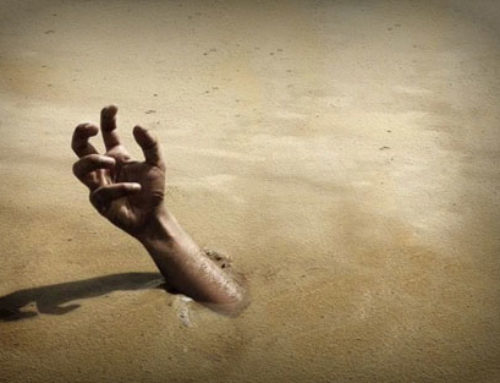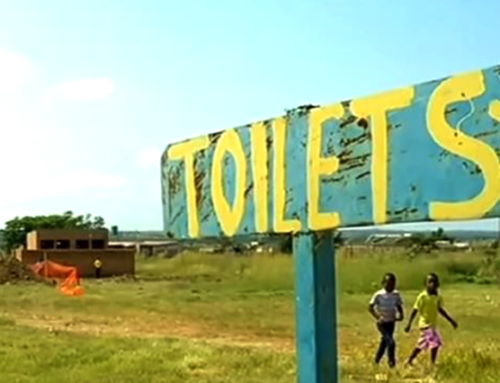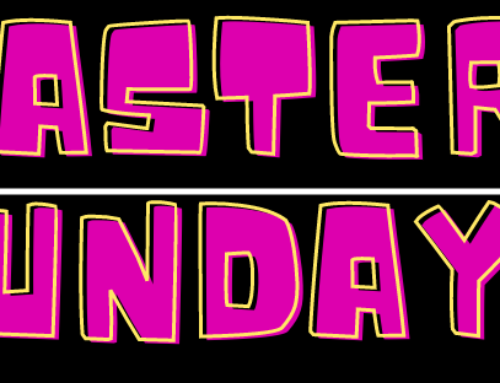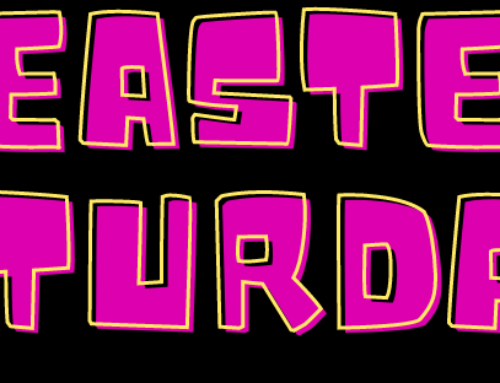6 With what shall I come before the Lord
and bow down before the exalted God?
Shall I come before him with burnt offerings,
with calves a year old?
7 Will the Lord be pleased with thousands of rams,
with ten thousand rivers of olive oil?
Shall I offer my firstborn for my transgression,
the fruit of my body for the sin of my soul?
8 He has shown you, O mortal, what is good.
And what does the Lord require of you?
To act justly and to love mercy
and to walk humbly with your God.[Micah 6]
Today, all around the world, millions of people who call themselves followers of Jesus Christ are going to gather together as His church.
It might happen in homes or school halls, it might happen in coffee shops or beautiful stained glass window bearing buildings designated as churches. The church [the people] are going to be meeting together.
At some point, there is the strong likelihood that someone will get up and preach a message from some part or parts of the Bible.
i wonder to myself what that person is going to say…
WHAT WILL BE SPOKEN?
i think what concerns me most is what won’t be spoken!
In Cape Town, during a two week period where two young women were murdered from two very different neighbourhoods with two very different responses, there is an opportunity for this week’s preach to focus on the fear that so many people live in and the hope that we find in Jesus, or perhaps of the disparity between rich and poor and how God has a special heart for all of those who the world pushes to the side. There is an opportunity for preachers to use the story Jesus tells, recorded in Luke 10, of the Good Samaritan, which told of how after a crime took place, the religious leaders who may have been expected to intervene rather crossed on over to the other side and refused for whatever reasons to get involved, while the person who would have been viewed as the outcast, the unclean, the marginalised and in more direct terms the enemy [the Samaritan] of the person who had been afflicted by crime was the one who stopped to help, who got involved, who gave in abundance of his resources, who interrupted that day’s journey and routine to intimately engage with someone he didn’t even know and wasn’t supposed to like [it’s like the sermon has already been written].
We could go all Old Testament on them and see if we can find any messages in there on acting justly, loving mercy and walking humbly with our God. There must be something like that somewhere, surely!
My fear is that the most that the majority of churches in Cape Town will do with regards to what happened this week is perhaps say a prayer for the families of the young women killed. [i guess a bigger fear which i probly can’t say out loud for fear of someone calling me something, is that there will be churches that say something about Franziska’s death without mentioning Sinexolo]
THROUGH THE BACK DOOR
If there are church gatherings where these events are not focused on directly, then my hope is that they will take a more indirect approach. A great sermon would be one on greed [i know, i know, you’re tired of your church preaching on greed all the time… Have you EVER heard a sermon on greed? A mention in passing perhaps, but i don’t know that i ever have and the Bible speaks about it quite a bit in strong condemnatory terms] where the systems and structures that are in place which lead to the conditions that Sinoxolo [and millions like her] live in which force them to have to venture out alone at night and walk a distance to an outside toilet as the only means of relieving oneself.
But how about the story in Luke 19 about Zacchaeus, which in effect is one about restitution. Jesus has an encounter with Zacchaeus and we unfortunately don’t have the transcript of what they spoke about, but we do know that a face to face encounter with Jesus was enough for Zacchaeus’ response to be:
8 But Zacchaeus stood up and said to the Lord, “Look, Lord! Here and now I give half of my possessions to the poor, and if I have cheated anybody out of anything, I will pay back four times the amount.”
To which we see Jesus’ response of:
9 Jesus said to him, “Today salvation has come to this house, because this man, too, is a son of Abraham. 10 For the Son of Man came to seek and to save the lost.”
Imagine if the person preaching at church today called for us to follow the example of Zacchaeus and give half of our possessions to the poor and then give back four times to anyone we have cheated out of anything. [i wonder if Zacchaeus had someone who used to clean his house and he paid her the minimum wage that Rome demanded at the time, but after encountering Jesus, might have wondered if even that was considered cheating her out of something?]
And more. There are various descriptions throughout the Bible as to what the people of God are meant to be like – metaphors calling us salt and light and a fresh fragrance among others. Each of these need to be present and active to be what they are. They infect and affect and cause an effect in the world around them. They are useless by themselves. A light needs to be seen, salt needs to be tasted and a fragrance needs to be smelled.
COME ON CHURCH
i don’t think it would be helpful or effective to preach on every incident that happens locally.
But this particular week, this particular incident or incidents-and-response feel really important [to me!]
If we are not speaking messages that are relevant both to what we believe but also to the reality we find ourselves in, then i fear we are missing out on what God intended for us. Jesus came and walked in the reality of His day and He used examples of things He found around Him to make His message more accessible and relevant to the people. He spoke into the Roman occupation of Israel which was the big issue of His day, both with His words and with His actions.
i completely believe the church is relevant to today’s world. Otherwise we are not relevant at all.
Come on, church. Surprise me today. Speak into these things in one or many ways…
How did your church do on this today? Were Sinoxolo and Franziska mentioned at all? What about other issues around the world that don’t relate specifically to your particular church congregation?








Why was the response from people on khayelitsha not more?
I think they can get thousands together for a poor protest or to bring down a statue, but they seem to do nothing when a young black girl is killed.
Perhaps we value our community lives more in our areas than they do in theirs?
If one is killed on our community it’s obvious there will be an outcry. I think you overreacting as we can’t go to other communities to grieve there too. It’s a community thing and I really think you reaching to make this affluence or race based or whatever you doing.
There should have been 3000 black people there, but it seemed like far far less.
Why are black people nor more in support of their community?
It’s a community based thing, not affluence or anything else.
That is a good question, Gary and i don’t know the answer [access to social media and connection/awareness to the event might have been it] but a huge question is the coverage by the media which does seem to be a rich/poor thing completely which gives off the message ‘this life matters more than that one’ which is the very thing we are fighting against… i think beyond that there are some very difficult questions in our country and if white people as a whole lived in the kind of conditions that black people do then we might find that the face of crime looks a lot different – think it is largely context influenced more than race…
I hear what you saying, but think you’re looking at it a bit skewed. You see if a murder happens in your family, street or suburb, you will most likely come together and mourn. The people of tokai came together and showed support for the family. That’s the end if it.
You I think are wondering why the people of tokai did not turn up on khayelitsha. Well, nobody in Tokai knew about the khayelitsha victim. Nobody in Tokai goes to khayelitsha for any reason. Nobody in Tokai would go there as its not too safe. The girl in Tokai was a muddle class coloured girl. It’s not about race…
Ate you talking about the media then? If so, then maybe the media should report both equally I agree. But if you are criticising a zoom unity then please rather say the people of tokai came together in a way that shone. Why did the khayelitsha people not come together for their victim?
“It seems to me that nearly everyone who knows anything about money realizes that since the entire system is entirely unfair and absurd, theft is, in many cases, not only justified, but noble. There are two species of those who understand this. Predators and altruists.
The rest of the people are slaves.
But here’s the interesting part: they’d prefer to serve altruists rather than predators. And here’s the twist: for this to be true, they have to be sufficiently educated to distinguish between them.”
Money… You use it. You a slave and a slave master.
I sat down one day with a beggar and asked on average what do they make a day begging. This person said on a bad day they make R250 on a good day they can make close to R2000 so on average they make about 500 a day. So on average in a 30 day cycle these beggars are making R15000 a month tax free. Some spend their money wisely and some spend it on drugs and alcohol. So you tell me. Is it fare for us who are hard workers and pay our taxes to be conned out of our hard earned money while the beggars can live a life of comfort without paying taxes. Don’t get me wrong yes there are people who really can’t find a job and land up begging, then there are those who can find a job and choose to rather beg as they are lazy and this is the quickest way to make money.
Now I get paid R17 000 per month, after tax its less than what this guy earns. I wonder if its not easier to just beg then. It seems that everything these days is orientated around those who don’t want to succeed. If a person can just pack up in the Eastern Cape (where they vote ANC which puts them in trouble) and come to the Western Cape and then want free house, service delivery, food everything for free, its not going to work. There is not enough money to go round in CT and people here don’t want to pay for them.
If you have a family to feed, you will feel the same, but at the moment you are either single or married and have no dependents. Having kids makes it quite different – you have to be more responsible. If you had kids would you go into townships and risk your life? Would you donate so much to car guards and petrol attendents when its possible that you may in future fall on hard times an not be able to feed your own kids?
You mean well it seems on here, but I think that you don’t have a regular 9-5 type job, paying much rent, paying a car, insurance and other things to cover a family and hence its easier to do what you do. You can live more carefree and if you die in a township, you don’t have kids who will go to an orphanage.
When you talk about white privilege, It applies to many of us whites, but we are here, we are educated and working. Whether we like it or not, we can’t go into townships and do what you are doing. We must work and take more precautions. You understand?
Hi Richard, thanks so much for stopping by – lots of people jump in and think differently and ultimately assume i’m an idiot and comment in that regard but you have clearly thought about what you are saying and the point of view you hold and that makes it much more enticing to engage in some kind of conversation or hopefully healthy debate…
i think there may be some assumptions you have made that are not true and i need to maybe go back and check what i said to see if it was on my end or yours but firstly the point about giving money to beggars at the side of the road is not something i think i said and i generally lean towards saying no to people on the side of the road – we try to be good about having food in our car like a piece of fruit or something so we can at least gift them in that way just in terms of common courtesy to a fellow human being but we don’t do that too well to be honest and could definitely up our game. But i would rather walk a journey with someone i know or have met and am trying to help – one example from my wife is that she [and another person who pays for the stuff] helps a struggling mom in our local community with a baby porridge type thing once a week – so the commitment is the family will show up and we will give them the food and the third party pays for it – so giving through some form of relationship in that case and there are many people we don’t help but this is one lady we do.
We are also part of a giving group where a group of us combine resources to help some friends in need and so it enables a bunch of us who like you may struggle to give in the same way if it is just us, to give towards needs we have chosen to where again relationship exists. My wife heads up Common Change, a non-profit which helps groups of people to do this and it’s worth looking at if you have a group of friends who might want to get creative about their giving.
In terms of the call to show up at the township that was just it – pitching up. My friend Jacqui came with her husband and they brought their three tinies [one attached to her via a blanket vibe] and it was completely safe and part of that was for the locals to see that deaths in their community matter just as much as deaths elsewhere – if you’ve never been into a township it can seem quite terrifying, but if you go in with relationship [someone had contacted the family beforehand and we went in with police who directed us there and helped from the traffic side of things] and just see how people live and meet people and get to see their humanity and how many of them live in very dehumanising type situations then it can make the desire to help and make a difference even stronger – i walk away with the feeling of ‘No-one should live like this’ and so my posts and hopefully my life from now will reflect this as we try get creative in terms of bridging the gaps etc… But just showing up is so huge. I actually lived in Kayamandi which is a township outside Stellenbosch for 18 months before i got married and felt completely safe because people knew me and looked out for me…
The steps we are inviting people to make are for everyone – we are not saying ‘Move into a township’ [well not yet – wink!] but we are suggesting that you go in safely and take a look around and just stand alongside people who are mourning and say “This matters”
Thanks again and keep wrestling with these things and maybe start with a smaller step of something that feels doable to you…
love brett fish
To the Students that are protesting:
I come from the so-called “advantaged” white segment of the population. However, I could not go to university as my parents could not afford it. That was how things worked. I accepted my lot in life and committed working my way up. My race counted for nothing. I was a pleb with a matric. No skills. Nothing to offer but my hands. Yes, I was an unskilled labourer and I was treated as such.
I started work at minimum wage the day after my last matric exam. This was with my current part-time employer, for whom I worked since I was 16 – over week-ends, while at school. I only got the post because someone had resigned, and I had showed my employer that I was worth it. I was taught by my hard-working parents that the world owes me nothing, and if I ever wanted something, I had to earn it. When I started in logistics I worked 16 hours a day with no overtime pay. I loaded trucks with my hands. Suffered back strains amd other aches amd pains. I got opportunities because I showed my commitment to the companies I worked for. It wasn’t fair. I was underpaid and overworked, but I did it because I wanted to make something of my life. I succeeded with some opportunities, not all.
I vowed that I would one day pay for my degree, which I did … 18 years after I started work. I went through UNISA because it was the most affordable option, and I am still studying there for the same reason. I worked my arse off for it. I was not given to me. I was not paid for by someone else. This was mine. The endless hour’s between 3am and 6am are my study hours because I have no other time. Work, family and sleep consume the rest of my time.
Stop playing the pity game. Get off your arse and understand that the world owes you nothing. Understand that there is no easy way. Life is about hard work. It’s about adding value every day until you retire. At work, you never reach a pinnacle. You are always competing. Put in the hours and commitment, and your employer will see you as a valuable employee and help you pay for your studies. That is how you will earn that piece of paper you yearn for. Life is hard. Suck it up and toughen up. School is finished. You are an adult. Behave as such. You can make a difference, but being a vandal is not going to help you in any way, now or in the future. Politicians are not going to help you. They will not change the world. They will bicker and fight for votes while the honest man makes a difference to one or two people around him.
So to those vandals who are trying to rid the country of its shameful history, when you forget your history, you forget the mistakes and make the same ones again. Embrace the past in all its fault. Embrace your life as a catalyst for change for the betterment of mankind. Embrace your position as an unskilled employee that will rise despite current challenges. Put something into the country before you demand everything for free. Earn what you want.
David, it sounds like you have indeed worked for what you have and that is commendable. But at the same time i don’t think you’re comparing two equal things and this is an opportunity for you to be quiet and listen and see if maybe your narrative is missing a chapter. Your entire race was not victimised by the government, fed weaker education, had less opportunity in terms of job and life opportunities and were not forced to live in an area not conducive to studying hard or easily finding part time jobs and so much more – when you take the whole story into account then suddenly even all the hard work you did pales in comparison to what many other people had to face – raising their younger siblings because their parents had to leave home at 3 or 4 in the morning to go off and clean white peoples homes or gardens because it was the only work many of them could find – the noise and disruption in the townships and lack of private space or quiet which makes studying a completely different matter. They are two different things and even 20 plus years after apartheid was officially dismantled you have to study the effects and consequences before you can do an adequate and fair comparison – the ease at which you would get a loan to study vs a black person whose parents are domestic workers and gardeners etc etc etc It is not as simple and easy as your story being compared to someone else’s.